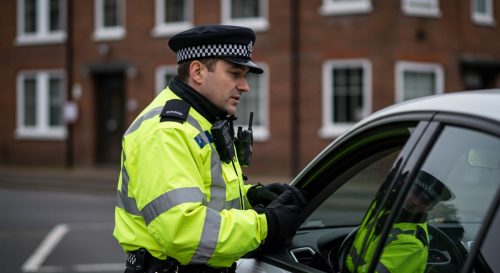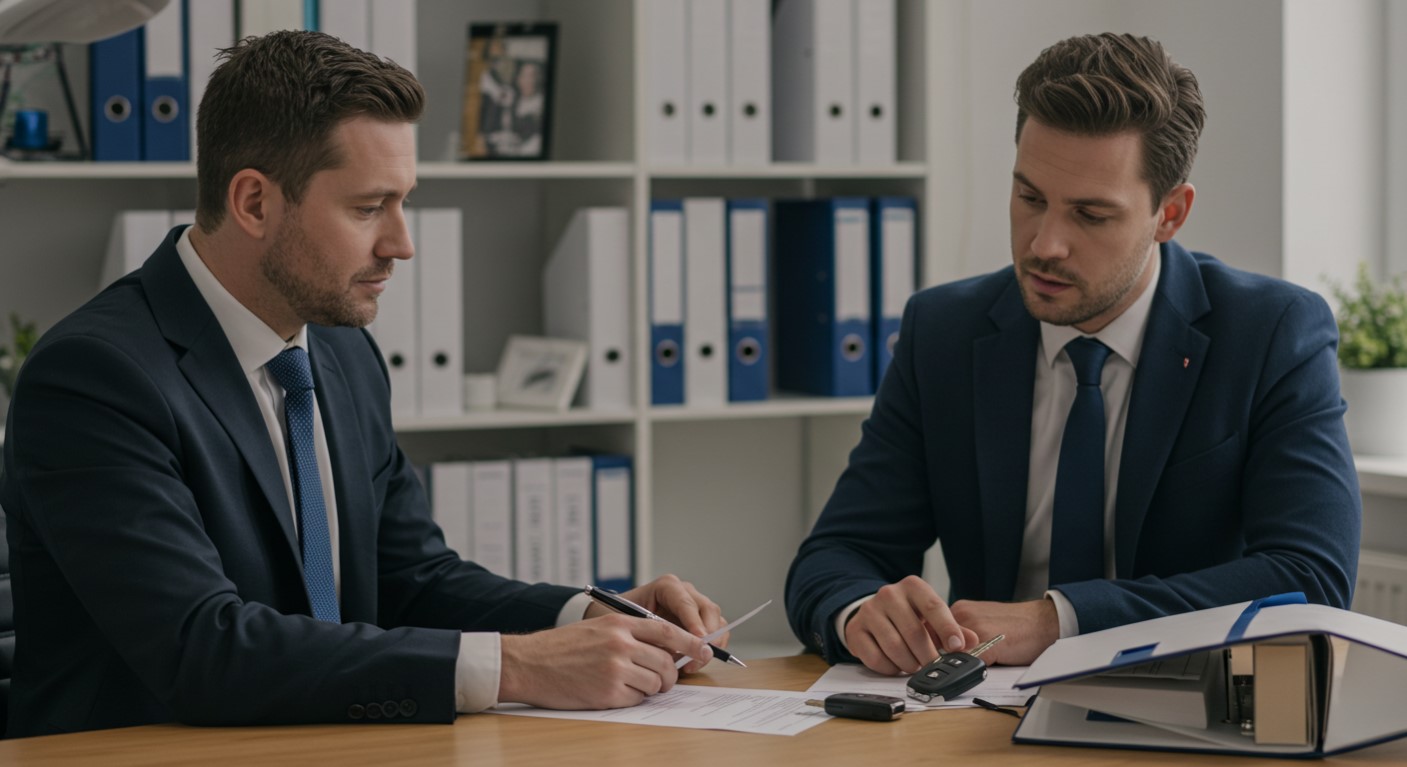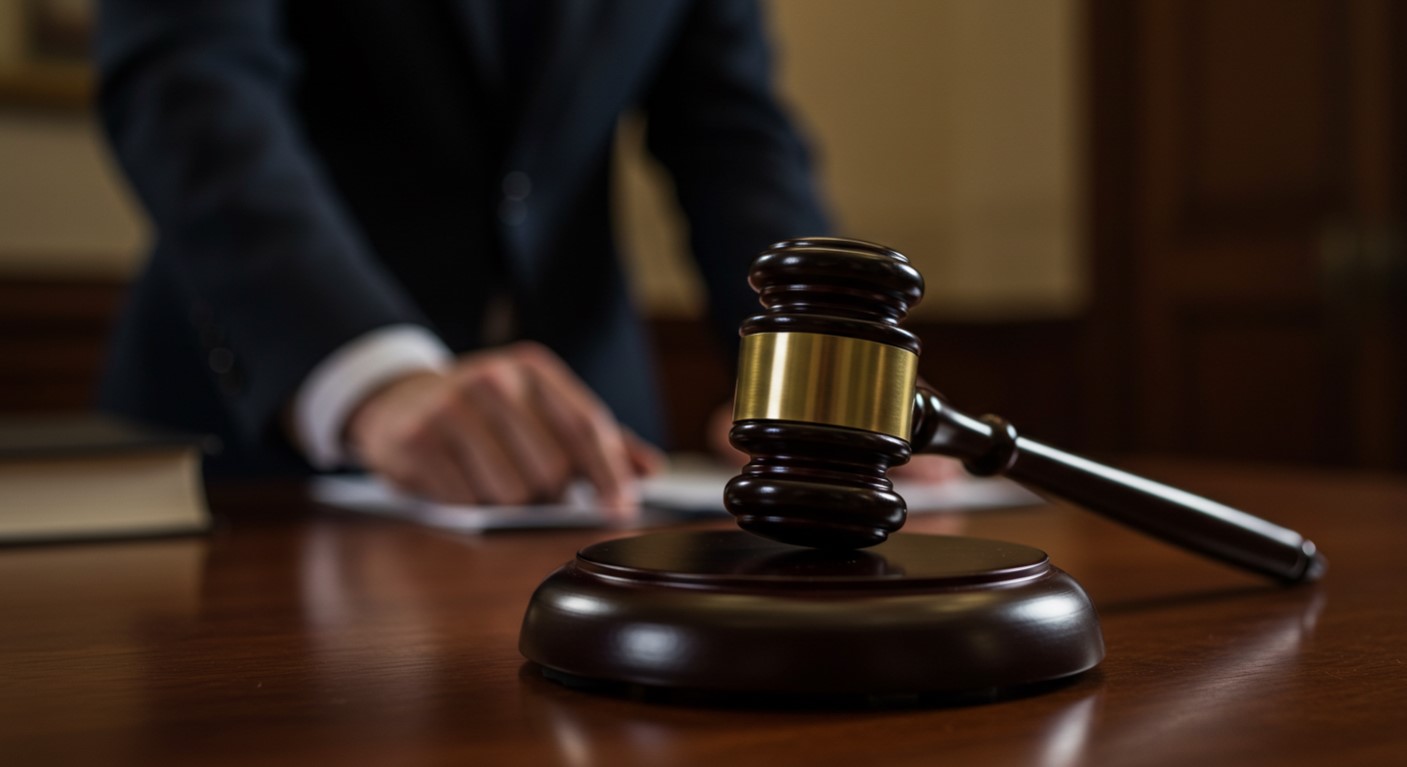Driving Offences in England: Why Hiring a Solicitor is Essential for a Strong Defence

Driving Offences in England: Why Hiring a Solicitor is Essential for a Strong Defence
Driving offences in England can have serious legal implications, impacting your driving privileges, financial well-being, and even your personal freedom. Whether you are facing charges for speeding, drink driving, dangerous driving, or other traffic offences, it is crucial to understand the importance of hiring a solicitor to navigate the complexities of the legal system.
In this article, we will explore driving offences in England and highlight the reasons why having a solicitor by your side is essential for a strong defence.
Understanding Driving Offences in England

Driving offences encompass a wide range of violations, from minor traffic infractions to more serious offences that can have severe consequences. In England, these offences are regulated by the Road Traffic Act 1988 and other relevant legislation. It is important to have a clear understanding of the different types of driving offences and their potential implications.
One common driving offence is speeding, where a driver exceeds the prescribed speed limit on the road. Speeding can result in fines, penalty points on your driving license, or even disqualification depending on the severity of the offence.
Other offences include careless driving, which refers to driving without due care and attention, and driving without insurance or a valid driving license.
More serious driving offences include drink driving, drug driving, and dangerous driving. Drink driving involves operating a vehicle while under the influence of alcohol, exceeding the legal alcohol limit.
Drug driving pertains to driving while impaired by drugs, including both illegal substances and certain prescription medications. Dangerous driving refers to driving that falls far below the standard expected of a competent driver and poses a risk to others on the road.
Additionally, there are offences related to failing to provide a breath, blood, or urine sample when required, using a mobile phone while driving, and driving without proper vehicle registration or MOT certificate.
Each driving offence carries its own set of penalties, which can range from fines and penalty points to driving disqualifications and imprisonment for more severe cases. The consequences can also extend beyond legal penalties, impacting your car insurance premiums and employment prospects, particularly for professional drivers.
Understanding the nuances and potential consequences of driving offences is crucial when facing charges. The legal system surrounding driving offences can be complex, with specific procedures, evidentiary requirements, and legal defences. This is where the expertise of a solicitor specializing in driving offences becomes invaluable.
They have an in-depth understanding of the relevant laws and regulations and can provide accurate advice and guidance tailored to your specific case.
By enlisting the services of a solicitor, you can navigate the legal complexities with confidence, knowing that you have a knowledgeable professional on your side. They will help you understand the charges you are facing, assess the evidence against you, and develop a strategic defence strategy.
With their expertise, you can make informed decisions, protect your rights, and work towards achieving the best possible outcome in your driving offence case.
Why Hiring a Solicitor is Essential for a Strong Defence
When facing driving offences in England, hiring a solicitor specialising in this area of law is essential for several compelling reasons. Here’s an in-depth look at why having a solicitor by your side is crucial for building a strong defence:
- In-depth Knowledge of Driving Laws: A solicitor specialising in driving offences possesses comprehensive knowledge of the applicable laws, regulations, and legal precedents. They stay updated on any changes in legislation and understand the nuances of driving offences. This expertise allows them to provide accurate legal advice tailored to your specific case, ensuring you are aware of your rights, the potential consequences, and the available legal options.
- Strategic Defence Planning: A solicitor will assess the evidence against you, identifying any weaknesses, inconsistencies, or procedural errors that could undermine the prosecution’s case. They will use their knowledge and experience to craft a strategic defence tailored to the specific circumstances of your case. This includes analysing witness testimonies, challenging the admissibility of evidence, and identifying legal arguments that can weaken the prosecution’s case.
- Skilful Case Presentation: A solicitor possesses the necessary skills and experience to present your defence effectively in court. They understand the legal procedures, rules of evidence, and courtroom etiquette. They will prepare you for court appearances, advise you on how to present yourself, and ensure that your defence is compelling, persuasive, and well-supported by legal arguments and evidence.
- Negotiation with Prosecution: In some instances, a solicitor can engage in negotiations with the prosecution to explore the possibility of reduced charges. They will use their negotiation skills and legal knowledge to advocate for the most favourable outcome. By engaging in discussions , they aim to secure reduced penalties, alternative sentencing options, or even dismissal of charges where appropriate.
- Expert Analysis of Evidence: A solicitor has the expertise to analyse the evidence presented by the prosecution. They will carefully scrutinise the methods used to gather the evidence, evaluate its reliability, and challenge its accuracy if necessary. This analysis may involve questioning the calibration of speed detection devices, the accuracy of breathalyser or drug testing equipment, or the credibility of witness statements. By identifying weaknesses in the prosecution’s evidence, they can strengthen your defence and raise doubts about your guilt.
- Knowledge of Mitigation Factors: If you are convicted or decide to plead guilty, a solicitor can present mitigating factors to the court. They will highlight any relevant circumstances, such as a clean driving record, remorse, or personal hardships, that may warrant a reduction in penalties. Their understanding of mitigating factors allows them to effectively advocate for leniency during sentencing.
- Legal Guidance and Support: Going through the legal process for driving offences can be overwhelming and stressful. A solicitor provides guidance and support, answering your questions, addressing your concerns, and keeping you informed about the progress of your case. They ensure that you understand the legal proceedings, the potential consequences, and the available options, empowering you to make informed decisions about your defence.
By hiring a solicitor specialising in driving offences, you benefit from their in-depth knowledge, strategic planning, skilful advocacy, and ongoing support. They act as your legal ally, working tirelessly to protect your rights, challenge the prosecution’s case, and achieve the best possible outcome.
With their expertise and guidance, you can navigate the complexities of the legal system with confidence and ensure that your defence is robust, persuasive, and effective.
Navigating the Complex Legal Process

Navigating the legal process for driving offences in England can be daunting, especially if you are unfamiliar with the intricacies of the legal system. Hiring a solicitor specialising in driving offences is essential for expert guidance and support throughout the entire process. Here’s an in-depth look at how they help you navigate the complex legal journey:
- Procedural Understanding: A solicitor has an in-depth understanding of the legal procedures involved in driving offence cases. They are well-versed in the paperwork, deadlines, and requirements specific to these cases. From filing necessary documents to meeting court appearances, a solicitor ensures that all procedural aspects of your case are handled correctly and in a timely manner.
- Legal Advice and Options: A solicitor provides you with expert legal advice tailored to your specific driving offence case. They explain the charges against you, the potential consequences, and the available legal options. With their guidance, you can make informed decisions about your defence strategy, such as whether to plead guilty or contest the charges.
- Evidence Assessment: A solicitor will thoroughly assess the evidence presented by the prosecution. They scrutinise the quality and admissibility of the evidence, ensuring that it was obtained lawfully and that it is relevant to your case. By carefully analysing the evidence, they can identify any weaknesses or inconsistencies that can be exploited to your advantage during the defence.
- Defence Strategy Development: Based on their assessment of the evidence and understanding of the case, a solicitor develops a comprehensive defence strategy. They tailor the defence to the specific circumstances of your case, considering the strengths and weaknesses of the evidence, potential legal arguments, and precedents that may support your defence. This strategic approach increases the chances of achieving a favourable outcome.
- Courtroom Representation: If your case proceeds to court, a solicitor provides skilled courtroom representation. They have experience presenting cases before judges and juries, presenting legal arguments, cross-examining witnesses, and challenging the prosecution’s evidence. Their courtroom advocacy ensures that your defence is effectively communicated and that your interests are vigorously defended.
- Proactive Case Management: A solicitor proactively manages your case, ensuring that all necessary steps are taken to protect your rights and advance your defence. They coordinate with relevant parties, such as expert witnesses or investigators, to gather additional evidence or obtain expert opinions that strengthen your case. They also liaise with the court, prosecution, and other relevant parties to ensure that your defence is properly presented.
- Mitigation and Sentencing Guidance: If a conviction is unavoidable or you decide to plead guilty, a solicitor guides you through the sentencing phase. They assess the potential penalties you may face, provide advice on mitigating factors, and present your case in the most favourable light to the court. Their knowledge of sentencing guidelines and experience in presenting mitigating factors can significantly impact the outcome of your sentencing.
By entrusting a solicitor with the navigation of the legal process, you gain peace of mind knowing that you have an experienced professional guiding you every step of the way. They handle the procedural aspects, develop a strong defence strategy, represent you in court, and provide valuable advice and support throughout the process.
Their expertise ensures that your rights are protected, your defence is well-presented, and your best interests are served during the legal journey.
Leveraging Legal Expertise and Defence Strategies
A solicitor specialising in driving offences brings invaluable legal expertise to your case. They possess in-depth knowledge of the laws and regulations surrounding driving offences in England and can leverage this expertise to build a strong defence strategy. Here’s an in-depth look at how they can assist you in this regard:
- Legal Analysis: A solicitor thoroughly analyses the details of your case, examining the evidence, witness statements, and any relevant documentation. They scrutinise the legality of the arrest, the accuracy of breathalyser or drug test results, and the procedures followed by law enforcement. This analysis allows them to identify potential flaws or weaknesses in the prosecution’s case, which can be used to challenge the charges against you.
- Challenge Prosecution’s Evidence: Armed with their legal expertise, a solicitor can challenge the admissibility, reliability, or relevance of the prosecution’s evidence. They can question the calibration of speed detection devices, challenge the accuracy of breathalyser or drug testing equipment, or dispute the credibility of witness testimonies. By exposing flaws or inconsistencies in the evidence, they weaken the prosecution’s case and create doubt in the minds of the court.
- Legal Arguments and Defences: Based on their analysis of the evidence, a solicitor develops compelling legal arguments and defences tailored to your case. They leverage their knowledge of driving laws, precedents, and legal strategies to challenge the prosecution’s case. This may involve arguing procedural errors, lack of evidence, or violations of your rights. By presenting strong legal arguments, they aim to weaken the prosecution’s case and increase the chances of a favourable outcome.
- Expert Witnesses and Resources: A solicitor has access to a network of expert witnesses and resources that can strengthen your defence. They can consult forensic experts, accident reconstruction specialists, or medical professionals who can provide expert opinions and testify in court. These experts can offer valuable insights, challenge the prosecution’s evidence, or provide alternative explanations that support your defence.
- Negotiation and Plea Bargaining: In some cases, a solicitor can engage in negotiation and plea bargaining with the prosecution. They can assess the strength of the prosecution’s case, identify potential weaknesses, and leverage this information to negotiate reduced charges or alternative sentencing options. By engaging in effective negotiation, they strive to secure the best possible outcome for you, minimising the impact of the charges and penalties.
- Preparing Witnesses and Defence Strategy: If there are witnesses in your case, a solicitor can prepare them for their testimony, ensuring they provide clear and accurate information that supports your defence. They strategise on how to present your case most effectively, emphasising key points, highlighting inconsistencies in the prosecution’s case, and leveraging any available evidence to strengthen your defence. This strategic preparation enhances the credibility and persuasiveness of your defence.
- Knowledge of Sentencing Guidelines: A solicitor is well-versed in the sentencing guidelines specific to driving offences. They understand the potential penalties associated with different offences and the factors that the court considers during sentencing. With this knowledge, they can present compelling arguments and mitigating factors to the court, aiming to secure a more lenient sentence or alternative sentencing options.
By leveraging their legal expertise and defence strategies, a solicitor specialising in driving offences helps you build a strong defence tailored to your specific case. They challenge the prosecution’s evidence, develop compelling legal arguments, and leverage their resources and expert witnesses to support your defence.
Their knowledge of sentencing guidelines allows them to advocate for the best possible outcome during the sentencing phase. With their guidance and expertise, you can effectively navigate the complexities of your driving offence case and work towards achieving a favourable resolution.
Access to Legal Resources and Mitigation of Penalties

When facing driving offences in England, hiring a solicitor provides you with access to valuable legal resources and expertise that can significantly impact the outcome of your case. Here’s an in-depth look at how a solicitor can assist with legal resources and the mitigation of penalties:
- Extensive Legal Resources: Solicitors specialising in driving offences have access to a wide range of legal resources that can strengthen your defence. They have comprehensive research materials, databases, and precedents at their disposal. These resources allow them to thoroughly analyse the legal landscape, stay updated on any recent case law or legislative changes, and identify relevant legal arguments and defences that can benefit your case.
- Expert Witnesses and Consultants: A solicitor can tap into a network of expert witnesses and consultants who can provide specialized insights and testimony to support your defence. For example, in cases involving technical aspects like accident reconstruction or forensic analysis, they can engage the services of experts who can evaluate the evidence and provide professional opinions. These expert witnesses can bolster your defence, challenge the prosecution’s evidence, and present alternative explanations or interpretations.
- Plea Negotiation: If a conviction seems likely or unavoidable, a solicitor can engage in discussions or negotiations with the prosecution. They possess strong negotiation skills and a deep understanding of the legal landscape. Through skilful negotiations, they can explore opportunities for reduced charges that may mitigate the impact of the offence and penalties you may face.
- Mitigating Factors Presentation: A solicitor understands the importance of presenting mitigating factors to the court during sentencing. They will thoroughly assess your personal circumstances, such as your driving record, employment situation, family responsibilities, and any efforts made towards rehabilitation. By effectively presenting these mitigating factors, they aim to persuade the court to consider leniency when determining your sentence.
- Alternative Sentencing Options: In certain cases, a solicitor may be able to advocate for alternative sentencing options rather than traditional penalties. For example, they may propose community service, participation in rehabilitation programs, or driver improvement courses as alternatives to more severe penalties. By presenting these options to the court, they seek to ensure that the punishment aligns with the specific circumstances of your case and encourages rehabilitation rather than solely punitive measures.
- Guidance on Legal Consequences: A solicitor provides crucial guidance on the potential legal consequences of different plea options or trial outcomes. They can help you weigh the risks and benefits of various decisions, ensuring that you make informed choices about how to proceed with your case. This guidance allows you to have a realistic understanding of the potential outcomes and make decisions that align with your best interests.
- Minimising Long-Term Consequences: A solicitor understands the long-term implications that driving offences can have on your personal and professional life. They work diligently to minimize the long-term consequences by advocating for reduced penalties, protecting your driving privileges, and aiming to prevent a permanent stain on your record. Their goal is to help you move forward with your life and mitigate any negative impacts resulting from the driving offence.
By utilising their access to legal resources, expertise in negotiation, and knowledge of mitigating factors, a solicitor can help you navigate the legal system effectively and work towards minimizing the penalties associated with driving offences.
They aim to protect your rights, secure the best possible outcome for your case, and mitigate the long-term consequences of the offence. With their assistance, you have a greater chance of achieving a favourable resolution that allows you to move forward with your life.
Courtroom Advocacy and Effective Representation
When facing driving offences in England, having a solicitor by your side ensures effective courtroom advocacy and representation. Here’s an in-depth look at how a solicitor can advocate for you in court:
- Courtroom Experience: A solicitor specialising in driving offences has extensive experience navigating the courtroom environment. They are familiar with court procedures, rules of evidence, and courtroom etiquette. This experience allows them to present your case effectively, ensuring that your defence is articulated clearly and persuasively.
- Presentation of Legal Arguments: A solicitor will present strong legal arguments on your behalf, challenging the prosecution’s case and highlighting any weaknesses or inconsistencies. They have a deep understanding of the relevant driving laws, precedents, and legal strategies, enabling them to construct compelling arguments that support your defence.
- Cross-Examination of Witnesses: During trial, a solicitor will cross-examine the prosecution’s witnesses, probing their testimony and challenging their credibility. They use strategic questioning techniques to expose any inconsistencies, biases, or ulterior motives that may undermine the witness’s reliability. This process helps to cast doubt on the prosecution’s version of events and strengthens your defence.
- Presentation of Defence Witnesses: If you have witnesses to support your defence, a solicitor will effectively prepare and present their testimony. They ensure that your witnesses are ready to provide clear and accurate accounts that strengthen your case. The solicitor will guide your witnesses in presenting their evidence, ensuring that it aligns with your defence strategy and bolsters your credibility.
- Examination of Prosecution’s Evidence: A solicitor will meticulously examine the prosecution’s evidence, challenging its validity and reliability when necessary. They may question the methods used for obtaining evidence, the accuracy of testing equipment, or any procedural errors that may have compromised the evidence. By scrutinizing the prosecution’s evidence, they can expose weaknesses and inconsistencies that weaken the case against you.
- Closing Arguments: A solicitor delivers a powerful closing argument summarising the key points of your defence. They effectively communicate the strengths of your case, highlighting any legal arguments, evidence, or mitigating factors that support your position. Their persuasive advocacy aims to sway the judge or jury in your favour, ensuring that your defence is presented comprehensively and convincingly.
- Protection of Your Rights: Throughout the trial process, a solicitor ensures that your rights are protected. They monitor the proceedings, object to any improper or prejudicial evidence, and challenge any violations of your rights. By vigilantly safeguarding your rights, they ensure that you receive a fair trial and that any potential infringements are addressed.
Having a skilled solicitor advocate for you in court is crucial for ensuring that your defence is presented effectively and your rights are protected. Their courtroom experience, knowledge of legal strategies, and persuasive advocacy techniques enable them to navigate the complexities of the trial process with confidence.
By presenting strong legal arguments, cross-examining witnesses, and effectively challenging the prosecution’s case, they work diligently to secure the best possible outcome for you in court.
Comprehensive Legal Support and Guidance

A solicitor specialising in driving offences offers comprehensive legal support and guidance throughout your case. Here’s an in-depth look at how they assist you in navigating the legal landscape:
- Personalised Approach: A solicitor takes a personalised approach to your case, recognising that every situation is unique. They take the time to understand your specific circumstances, listen to your concerns, and address any questions or uncertainties you may have. This personalised attention ensures that you feel supported and that your case is handled with the utmost care and dedication.
- Legal Advice and Clear Communication: A solicitor provides expert legal advice, explaining the intricacies of the legal process in a clear and concise manner. They help you understand the charges against you, the potential consequences, and the available legal options. By communicating effectively, they ensure that you have all the necessary information to make informed decisions about your defence.
- Regular Case Updates: Throughout the course of your case, a solicitor keeps you informed with regular updates on its progress. They provide you with updates on any developments, such as new evidence, court dates, or negotiation discussions. This regular communication ensures that you are aware of the status of your case and allows you to stay informed and involved in the decision-making process.
- Strategic Decision-Making: A solicitor guides you in making strategic decisions regarding your defence. They weigh the pros and cons of different options, explain the potential risks and benefits, and provide you with their professional recommendations. By offering objective advice and insights, they empower you to make informed choices that align with your best interests and goals.
- Emotional Support: Dealing with driving offences can be emotionally challenging, causing stress, anxiety, and uncertainty. A solicitor recognizes the emotional impact of your case and provides the necessary support and reassurance. They listen to your concerns, empathise with your emotions, and help alleviate some of the burdens associated with the legal process. Their empathetic approach ensures that you feel supported throughout the entire journey.
- Liaison with Other Parties: A solicitor acts as your intermediary and communicates with other parties involved in your case. They liaise with the court, prosecution, and any necessary experts or witnesses on your behalf. This ensures that all necessary information is conveyed accurately and efficiently, reducing the potential for miscommunication or misunderstandings.
- Post-Case Support: Even after your case is resolved, a solicitor can provide post-case support and guidance. They can advise you on any ongoing legal obligations, such as fulfilling court-ordered requirements or dealing with the aftermath of the case. This continued support ensures that you are equipped to navigate any post-case matters effectively.
By providing comprehensive legal support and guidance, a solicitor aims to alleviate the stress and uncertainty associated with driving offences. They address your concerns, keep you informed, and empower you to make informed decisions about your defence.
Their personalized approach, clear communication, and ongoing support ensure that you have the necessary resources and assistance to navigate the legal process with confidence. With a solicitor by your side, you can have peace of mind knowing that you have a dedicated legal professional supporting you at every stage of your case.
Conclusion: Importance of Hiringh a Solicitor when Facing Driving Offences in England

When facing driving offences in England, hiring a solicitor specializing in this area of law is crucial for a strong defence and a favourable outcome. Throughout this article, we have explored the importance of having a solicitor by your side during driving offence cases.
From their expertise in driving laws and legal procedures to their ability to develop strategic defence strategies, solicitors play a vital role in protecting your rights and advocating for your best interests.
By enlisting the services of a solicitor, you gain access to their in-depth legal knowledge, courtroom experience, and resources that can significantly impact the outcome of your case. They meticulously analyse the evidence, challenge the prosecution’s case, and present compelling legal arguments on your behalf.
Their negotiation skills and understanding of sentencing guidelines also enhance the possibilities of securing reduced charges or alternative sentencing options.
Furthermore, solicitors provide comprehensive legal support, offering guidance, reassurance, and personalised attention throughout the entire legal process. They keep you informed, communicate clearly, and provide you with the necessary information to make informed decisions about your defence.
They understand the emotional toll that driving offences can have and offer empathetic support to help alleviate some of the stress associated with your case.
By hiring a solicitor, you benefit from their expertise, experience, and dedication to achieving the best possible outcome for your driving offence case. Their presence ensures that your rights are protected, your defence is strong, and you have a knowledgeable advocate representing you in court.
With their guidance and support, you can navigate the complexities of the legal system with confidence and work towards minimising the penalties associated with driving offences.
In conclusion, when faced with driving offences in England, it is essential to recognize the significance of hiring a solicitor. Their legal expertise, strategic defence planning, courtroom advocacy, and comprehensive support can make a substantial difference in the outcome of your case.
Don’t underestimate the importance of having a skilled solicitor by your side to protect your rights, challenge the prosecution’s case, and strive for a favourable resolution.
Notice: Informational Content Disclaimer
The content provided on this website, including articles, blog posts, and other informational materials, is intended for general informational purposes only. It is not intended as, and should not be considered, legal advice.
Visitors to this website should be aware that the information presented here is not a substitute for seeking legal advice from a qualified solicitor or legal professional. Each individual's legal situation is unique, and the information provided may not be applicable to specific circumstances.
If you require legal advice or have specific legal questions, we encourage you to contact us directly. Our experienced team of solicitors is here to assist you with your legal needs and provide tailored advice to address your concerns.
Please be advised that any communication through this website, including the use of contact forms or email, does not create a solicitor-client relationship. Confidential or time-sensitive information should not be sent through this website. To establish a solicitor-client relationship and discuss your legal matters in detail, please contact us for a consultation.
We strive to provide accurate and up-to-date information, but we make no representations or warranties regarding the accuracy, completeness, or suitability of the information contained on this website. We shall not be liable for any reliance placed on the information provided herein.
Thank you for visiting our website. We look forward to the opportunity to assist you with your legal needs.




